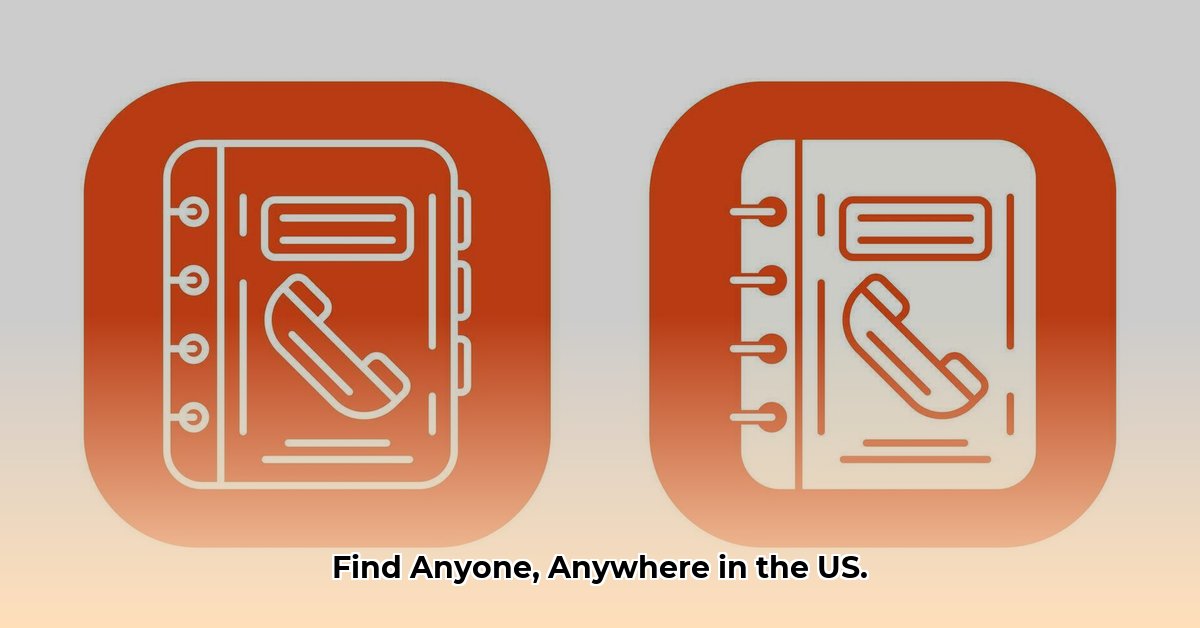Finding People Online: A Modern Approach
Gone are the days of bulky phone books. Today, finding someone’s contact information usually starts online. This guide provides a practical walkthrough of using online “phonebooks” to find people and businesses, verify information, and even identify unknown callers. We’ll also cover key considerations like accuracy, privacy, and responsible information handling.
People Search: Step-by-Step
Several websites specialize in people searches. Two common options are WhitePages and USPhoneBook. Here’s how they work:
WhitePages:
- Go to WhitePages.com.
- Enter the person’s name and, if known, their city and state.
- Refine your search by adding details like age or a previous address if needed.
USPhoneBook:
- Navigate to USPhoneBook.com. (Note: This link may not be active; USPhoneBook may have merged or been replaced. Confirm availability.)
- Enter the person’s name and location, if known.
Tips for Effective People Searching:
- Be Specific: Include as much information as you know (middle initial, age range, etc.).
- Try Variations: Search using nicknames, maiden names, or previous addresses.
- Verify Information: Cross-reference findings with other sources to ensure accuracy.
Reverse Phone Lookup: Identifying Unknown Callers
Received a call from a mysterious number? Reverse phone lookup can help. Many people search platforms offer this service, including WhitePages (often with limitations on the free version) and USPhoneBook (generally free). Simply enter the phone number to potentially uncover the caller’s identity.
Free vs. Paid Services: Choosing the Right Tool
Free services often provide basic contact details, while paid subscriptions unlock more extensive information (background checks, family connections, etc.). The best choice depends on your specific needs.
Beyond the Basics: Alternative Search Methods
If standard searches fail, consider:
- Social Media: Platforms like Facebook, LinkedIn, and Twitter can be powerful search tools.
- Specialized Search Engines: Sites like PeekYou aggregate publicly available information.
Finding Business Information Online
Online business directories are the modern equivalent of yellow pages. Here are a few options:
- AllBiz: Millions of business listings with contact details, operating hours, and even some financial data. Regularly updated information is more likely to be accurate.
- Bizprofile (if still active): Organizes listings by state and city, simplifying geographical searches. May focus primarily on registered businesses, helpful for legal research.
- Industry-Specific Directories: Use NAICS or SIC codes to refine searches within specific industries. NAICS Association is a valuable resource.
Search Strategies for Businesses:
- Specificity is Key: Instead of “restaurants,” search “Italian restaurants in Chicago.”
- Verification is Crucial: Confirm information from multiple sources and check for consistency.
- Explore Deeper: Look beyond basic contact details for website traffic, employee counts, and revenue estimates.
Finding Government Officials:
- House of Representatives: House Telephone Directory
- State Department: U.S. Department of State Telephone Directory (Look for the most current directory link, as these can change)
- GovInfo’s Congressional Directory: Search GovInfo for biographical details on members of Congress.
Comparison Table: Choosing the Right Resource
| Feature | WhitePages | USPhoneBook | Government Directories | AllBiz | Bizprofile |
|---|---|---|---|---|---|
| Cost | Paid & Free Options | Free | Free | Free & Paid Options | Varies |
| Reverse Lookup | Yes | Yes | Limited | Limited | Likely Limited |
| Address Info | Yes | Limited | Varied | Yes | Yes |
| Background Checks | Yes | No | No | Potentially | Probably No |
| Business Info | Limited | Limited | Varies | Extensive | Moderate |
| Scope | Comprehensive | Public Data | Gov. Agencies & Officials | Businesses | Registered Businesses Primarily |
| Accuracy | Generally High | Varies | High | Likely High | Unknown |
Note: Some services and features may change. Always verify information and pricing directly with the respective websites. The information about Bizprofile and USPhonebook is limited and their current status should be confirmed.
Data Accuracy and Privacy: Important Considerations
Online information isn’t always perfect. Data can become outdated, so double-checking is essential. Be mindful of privacy implications. Review each service’s privacy policy to understand how your information is used. Responsible information handling is crucial. Never use information for harassment, stalking, or illegal activities.
Staying Current: The Evolving Search Landscape
The digital world changes constantly. New tools and resources emerge regularly. Staying informed about these advancements will help maximize your search effectiveness. Continued research and a critical eye are important for navigating the ever-evolving world of online information gathering.
- Hydroelectric Power Basics How Water Is Used For Electricity - February 26, 2026
- Portable Water Generators Power Off-Grid Homes and Adventures - February 25, 2026
- Portable Hydroelectric Power Generators Light Up Off-Grid Living - February 24, 2026
















